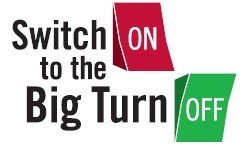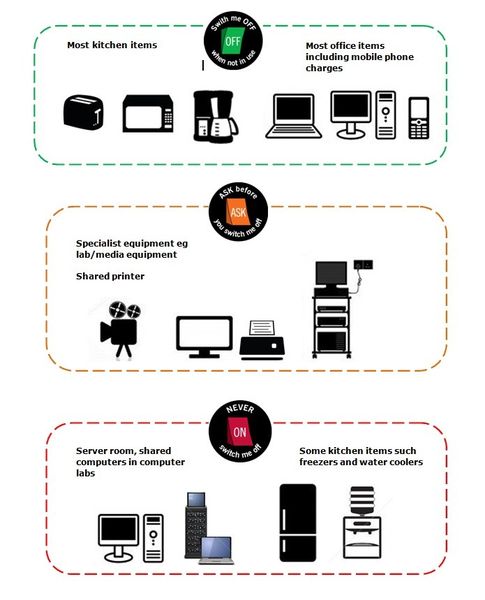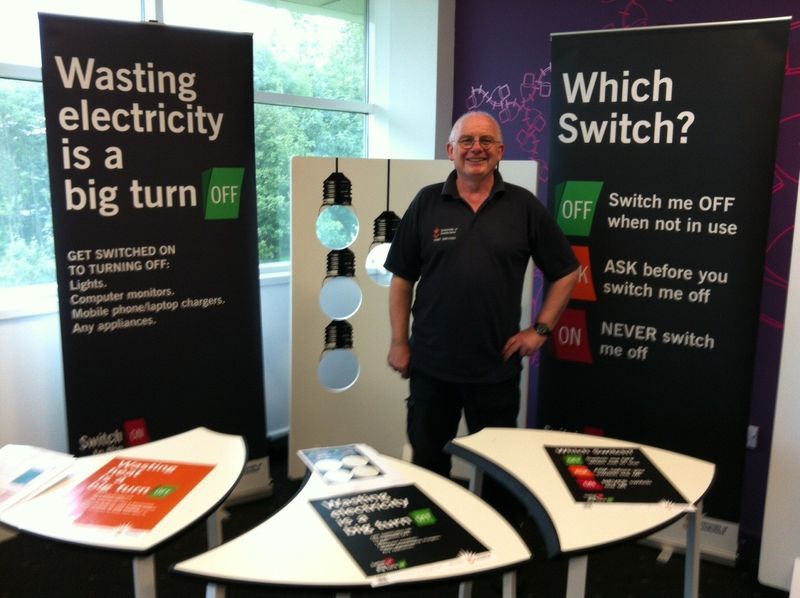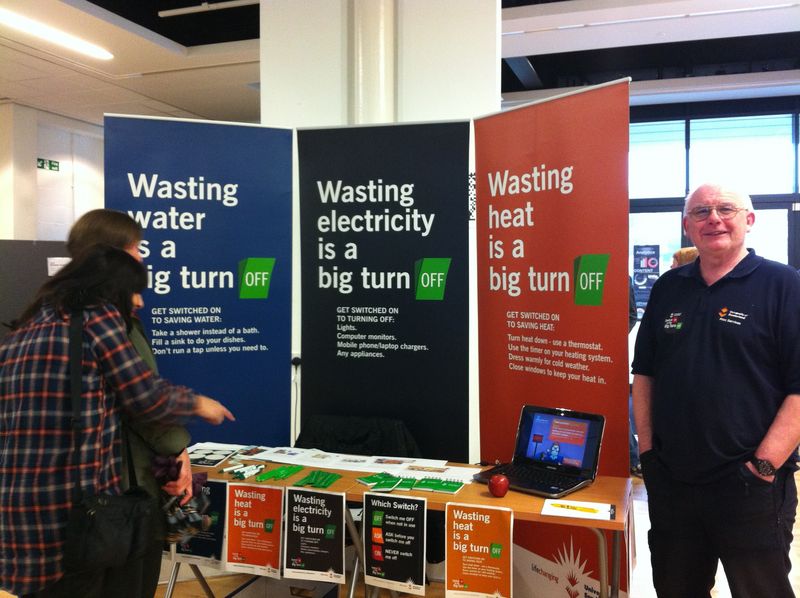University of Sunderland
The University of Sunderland is committed to integrating sustainability as a core value across all aspects of its business, aiming to provide a safe and healthy environment for all and to apply the principles of sustainable development and energy management in everything the University does.
Carbon Management
The University of Sunderland was one of the first universities in the UK to produce a Carbon Management Plan in 2006 and it has continued to strive to improve its Carbon related performance ever since.
A rapidly evolving area, the University has tackled its Carbon impact in three core strands:
• Building Performance - refurbishment and retrofit of buildings with high energy performing replacements e.g. high definition lighting, comprehensive building management control systems.
• Estate Management - refinements in the management of the University estate to improve energy efficiencies e.g. reduction in metres2 per staff/student, consolidation of University estate allowing disposal of inefficient, underutilised buildings.
• Behaviour - working to change the behaviour of staff and students so that unnecessary energy wastage can be curtailed.
Behaviour change has proven to be a challenging core strand for the University. Students are inundated with information on a daily basis, so finding effective methods to engage with them can be challenging. The topic of Carbon is very complex. Trying to provide a suitable context around why the University requires them to change their behaviour is difficult. It needs to convey the key messages but not so much information that they switch off.
Energy Environmental Action Group
In 2008 the University developed a number of Environmental Action Groups (EAG’s), each based around a specific environmental issue affecting the University e.g. waste, energy, travel. Membership of the groups includes those with a working responsibility for the area, for example an Energy Manager, or those with a vested interest in the topic.
The Energy EAG was one of the first to launch, with a consistent membership of approximately ten people providing penetration across the whole of the University estate. The first 12 months of the EAG focused on smaller scale projects and information exchange, providing an opportunity for the Group to ‘bed in’ before tackling a larger scale project.
In 2010 the Group worked with the Energy Saving Trust to develop a longer term project, the Energy Awareness Communication Plan. The aim of the project was to develop a comprehensive behavioural change campaign, something that had also been identified as an action during the University’s participation in the Higher Education Carbon Management Programme and was included in the current University Carbon Management Plan. The goal of the campaign was to encourage efficient use of energy and water by staff and students, with the intention of achieving an 8% reduction.
Big Turn Off Campaign
With limited resources available, the Energy EAG ran a competition for staff and student to design a suite of promotional materials to be used as part of the behavioural change campaign. Initially, there was some hesitation as to how successful this would be as historically there had been little interest in these types of competitions. However the prize of an iPod touch and iTunes voucher proved to be a valuable incentive and a number of entries were received, with the winning entry being unanimously selected by the Group as the winner.
Key elements of the campaign:
• Posters - prompting people not to waste energy and water
• Pull ups stands - mobile large scale posters that could be used at events, in high footfall areas or in areas that were under performing
• Colour coded labelling: stickers to be placed on electrical appliances to indicate when they should be switched off. Based upon traffic lights, green always switch off, amber ask before turning off, and red never switch off.
The artwork from the winning entry was printed onto the posters, stickers, pull up stands and was also transferred into electronic format for plasma screens. The decision was taken to trial the campaign first in a Faculty or Service to identify any teething problems before rolling it out across the whole of the University. The Faculty of Education and Society agreed to the trial and to obtain feedback from the staff and students in the department. This proved to be a valuable element of the campaign. One of the main sources of feedback was that the plain coloured stickers upon the machines were not visual enough to have an impact. Therefore a redesign of the sticker to incorporate the campaign identity was undertaken and the feedback has since been very positive. Another issue was the lack of ‘official’ correspondences or templates that could be used by the Faculty or Service to send out to staff and students. This was remedied by a number of templates being developed and a written guide for Faculties or Services to use.
For a number of logistical reasons it was decided to roll the campaign out on a Faculty/Service by Faculty/Service basis. This was the method adopted by the University when rolling out the recycling scheme some years previously. Although this meant the roll out of the campaign across the whole of the University was prolonged, it allowed for a more dedicated approach to be taken in each Faculty/Service - giving greater support and help to identify issues as they arose.
Feedback on the campaign has been positive. In the University Staff Survey 2013, there was a specific question regarding awareness of the Big Turn Off Campaign. The results confirmed that where it been implemented, there was a good level of awareness amongst staff and where it had not been implemented there was limited awareness.
The University has also implemented in recent years an Environmental Auditing module as part of a larger Health, Safety and Environmental Auditing programme. The implementation and awareness of the Big Turn Off is assessed and scored as part of the criteria.
Main Contact Name: Claire Mather, Health, Safety and Environment Adviser
Main Contact Email & Telephone: claire.mather@sunderland.ac.uk and 0191 5152056
Further information/website: www.sunderland.ac.uk/hr/hs&e/environment
Share with us: www.twitter.com/UoSustainable
















